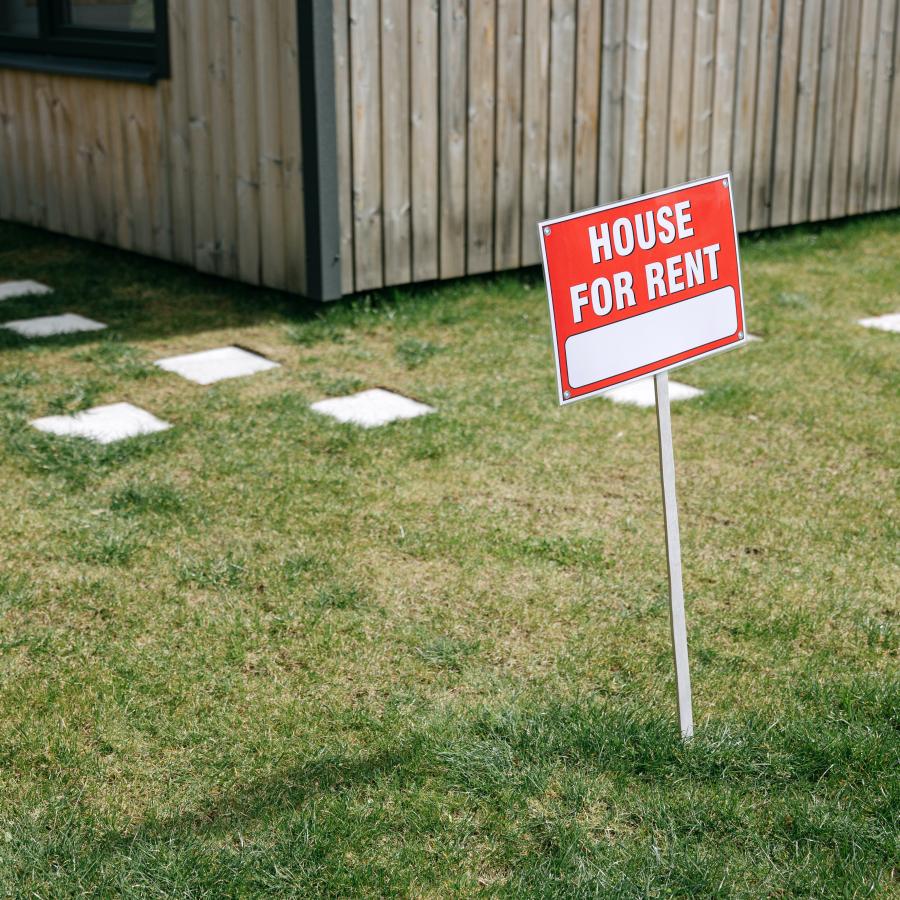Right to Counsel for Tenants

For low-income renters facing the possibility of eviction – disproportionately renters of color and particularly Black women with children – having legal representation can mean the difference between staying in their homes and being forced out. While the United States Constitution provides all individuals facing criminal charges with a right to counsel, no such broad federal constitutional right exists in civil cases, including eviction cases. Low-income tenants must typically represent themselves against landlords who often have legal representation. State courts have recognized a state constitutional right for some kinds of civil cases such as child welfare or mental health cases, but to date no state court has recognized a right to counsel for eviction cases. In places like Houston, Texas, this means that tenants are tasked to plead their case by themselves in less than 90 seconds. According to data analyzed by the National Coalition for a Civil Right to Counsel, across the US, only four percent of tenants have legal representation in eviction cases, while 83 percent of landlords have representation. In the face of this uneven playing field, a growing number of cities are passing policies that provide a right to free legal assistance to low-income renters facing eviction cases. And they are working: In New York City, 84 percent of represented tenants remained in their homes; in Connecticut, 85 percent of supported clients avoided displacement; in Kansas City, 86 percent of tenants remained housed and avoided an eviction record.
By providing a right to legal representation to low-income renters facing eviction, known as a right to counsel (RTC), cities and states can intervene to help stabilize households at a crucial moment — evictions increase individuals' and families' vulnerability to homelessness, resulting in negative consequences for their health, education, and economic mobility. Researchers have found that in fact, tenant RTC can help curb the negative health outcomes that result from an eviction. Over five years after the COVID-19 pandemic, Philadelphia, where the tenant RTC has continued to expand across the city, has maintained eviction rates well below historic filing rates. However, eviction complaints are still disproportionately being filed against Black renters, who are twice as likely to face the threat of an eviction compared to white renters.
Preventing evictions through a tenant RTC is a key strategy to prevent homelessness, improve community health outcomes, and maintain neighborhood stability in housing markets with unregulated, unscrupulous landlords who may be tempted to use evictions to remove rent-protected households or sell their property to speculators. Overall, preventing evictions can mitigate the power imbalance between tenants and landlords. Landlords have taken advantage of their relative power in the eviction process to serially file evictions against tenants as a rent collection tool, for example. Outside of the courts, landlords have been found to illegally evict tenants through threats, lockouts or other means which have been shown to occur with as much frequency as legal evictions.
Finally, preventing evictions can save cities a lot of money. This fact is underscored by comprehensive cost-benefit analyses (CBA) conducted in various regions. Notably, a CBA for a right to counsel for tenants in New York City found that the program would cost about $200 million per year, and would save the city $320 million in costs related to housing displaced families in the homeless shelter system, preservation of rent-regulated affordable housing, and unsheltered homelessness. A 2022 economic impact assessment on Detroit’s right to counsel initiative was predicted to lead to over $18 million in annual cost savings for social safety net responses. Detroit City Council later passed right to counsel legislation in May of 2022. Further, in Cleveland, the first midwestern city to pass right to counsel, an evaluation of the program showed the $1.1 million in cost savings related to housing social safety net responses, $1.4 million in economic value preserved by retaining residency in Cleveland, and many others, totaling up to $4.7 million in estimated fiscal savings.
Other CBA’s have found that a right to counsel can result in notable economic benefits to a community by reducing residents' need for emergency social services that arise after forced displacement. A CBA for Columbus and Franklin County, Ohio found that for every dollar that the city invests in a right to counsel for residents of Columbus and Franklin County, the city will realize $4 in economic benefits, culminating to $24.4 million. In Chattanooga and Hamilton County, Tennessee, a one dollar investment in a tenant RTC is estimated to lead to $4.84 in economic benefits, a total of approximately $3.1 million.
Evaluations on a tenant right to counsel have also shown the extent of these cost savings after the program has been implemented. For example, a 2024 evaluation of Maryland’s Access to Counsel in Evictions (ACE) program found that every dollar invested into ACE from July 2023 to June 2024 led to an $3.04 in economic benefits for the state, a total $46.7 million dollars. Another 2024 independent evaluation of Connecticut’s Eviction Right to Counsel program found that from January 2022 to November 2024, Connecticut has seen $2.64 dollars in economic benefits for every dollar spent on the program, resulting in a total of $36.6 million.
In addition to the PolicyLink resources listed to the right, see Public Counsel, National Coalition for a Civil Right to Counsel, Results for America Solutions Sprint: Housing Equity in Action, STOUT Eviction Right to Counsel Resource Center, and National Low Income Housing Coalition for additional resources on a tenant right to counsel.
- Elected and appointed city officials can pass legislation to mandate a right to legal counsel for tenants facing eviction or displacement, establish programs, and dedicate public funds to supporting legal representation.
- Tenant organizers, impacted tenants, community-based organizations and other advocates push city and county officials to pass right-to-counsel legislation and dedicate resources for legal representation to low-income households.
- Business leaders and philanthropy can provide financial support to public and nonprofit programs that provide pro bono legal representation for low-income individuals.
- Law firms can dedicate pro bono attorney resources toward legal representation for low-income tenants threatened with eviction.
The strongest legal assistance policies guarantee a right to counsel for tenants facing eviction or displacement through dedicated public funding. Cities seeking to implement policies and programs guaranteeing legal representation for tenants must consider a range of related legal and practical issues.
- Building public will: Advocates and officials should consider conducting a cost-benefit analysis to measure the overall economic, budgetary, and logistical effects of guaranteeing tenants’ right to counsel. These analyses can help elected officials and the general public understand the benefits of such a program. In the long term, implementing a policy guaranteeing renters’ right to counsel may produce significant public savings. Polling research also shows that there is significant support behind government action to prevent evictions. 64 percent of voters were in support of expanding funding for legal services to prevent evictions and 68 percent of voters claimed to support the right to counsel for tenants facing eviction proceedings.
- Data analysis: Local leaders should take steps to understand the scale of eviction proceedings in their city — how many eviction proceedings are scheduled each day, how often tenants are represented, and how likely they are to win their cases. Organizers, legal advocates and community leaders can do this by accessing existing eviction data trackers or creating their own data collection systems and processes. In addition, support should be provided to collect data through other means like court-watching. Baltimore Renters United has collected and publicly displayed rent court data monthly from their court watching efforts. Each month, they assess the outcomes of cases, landlord court appearances, and if tenants bring up habitability concerns in their trial. By instituting court-watching, community leaders can understand the nuances of eviction proceedings, the shortcomings of government programs meant to assist with reducing evictions, and understand what is necessary for a successful right to counsel program.
- Funding: Guaranteeing legal protections for tenants facing evictions demands dedicated, sustainable funding. Long-term support should be secured through established public funding sources such as m existing or new legal defense funds, affordable housing trust funds, taxes, federal funding, and fees to developers. Temporary, bridge funding from philanthropic organizations may help in transitional periods, but should not be relied upon as a permanent funding solution. The National Coalition for a Civil Right to Counsel has compiled a matrix of all passed and implemented tenant right to counsel policies and their funding sources.
- Encouraging effective pro bono legal services: Some legal costs could be offset by engaging pro bono representation from large law firms; however, the primary responsibility for guaranteeing a right to counsel should remain with government-funded programs. Not all private attorneys have expertise in protecting tenant rights, however. If pro bono services are incorporated, they must undergo basic training in eviction defense and relevant housing laws to ensure quality representation. This approach should complement, not substitute for, mission-driven legal teams dedicated to supporting low-income tenants.
- Complementary policies: To address both the immediate and long term impacts of evictions, eviction diversion and tenant screening regulations, such as eviction record sealing, are complementary policies that work interconnectedly with tenant right to counsel. These policies work to balance the power of landlords and tenants in eviction proceedings, maintain housing and community stability, and increase access to housing opportunities. They are also important race equity tools and solutions for decreasing the racial impacts of evictions.
- Integrated Services and Coordination: RTC programs should be integrated into a broader housing stabilization framework. Cities should consider coordinating legal representation with housing assistance, eviction diversion programs, and post-eviction support services. This holistic approach ensures that tenants receive comprehensive support before, during, and after eviction proceedings. Effective collaboration among housing departments, legal aid organizations, and community service providers can improve overall outcomes for low-income residents.
- Continuous Monitoring and Evaluation: Ongoing evaluation of RTC programs is essential for long-term success. RTC jurisdictions should establish metrics and regular reporting systems to monitor case outcomes, assess service accessibility, and gauge overall program effectiveness. Incorporating feedback from tenants, legal advocates, and court staff will help identify gaps and inform adjustments, ensuring the policy remains responsive to community needs.
In the United States, legal protections afforded to low-income households tend to be patchwork efforts supported by nonprofit legal aid groups, pro bono attorneys who volunteer their time, and even law students. Prior to 2017, there were no jurisdictions in the country that provided a right to counsel for tenants facing eviction. However, this has changed rapidly as the movement for tenant right to counsel has grown. New York City was the first to pass the law in 2017, followed by Newark and San Francisco in 2018, and Philadelphia and Cleveland in 2019. In 2024, one additional state, city, and county had passed tenant right to counsel laws (for a total of 18 cities, 2 counties, and 5 states with a tenant right to counsel), with active campaigns moving across the country in 2025.
- In 2017, New York City Mayor Bill de Blasio and City Council Speaker Melissa Mark-Viverito announced that the city would become the first in the nation to provide legal assistance to all low-income tenants facing eviction, a decision that advocates celebrated as a tool for resisting gentrification, reducing unjust evictions, and supporting tenants’ rights to organize. In the years since the program began, it has continued to expand: most recently, the passage of INT-673 permitted for NYC’s RTC to apply to all senior citizens in NYC, regardless of their income level. Results from the program have been overwhelmingly positive: 84% of tenants in New York City who were represented by an attorney in eviction cases in 2023 were able to stay in their homes.
- In 2018, San Francisco residents voted 56% to 44% to approve Proposition F, a ballot initiative to guarantee a right to counsel for all tenants facing eviction, regardless of income. This campaign was led by a coalition of tenant groups and advocates called the SF Right to Counsel Committee. The latest data demonstrates how powerful of a tool the law is in protecting tenants from eviction, maintaining neighborhood stability, and avoiding homelessness. As the 2024 data shows, 92% of tenants represented through the right to counsel program were able to avoid homelessness.
- In November 2019, followingr years of dedicated advocacy, organizing, media efforts, and research, Philadelphia community leaders’ achieved a significant milestone when Philadelphia City Council unanimously passed Right to Counsel legislation for tenants facing eviction. Philadelphia’s RTC guarantees all low-income renters free legal representation in eviction proceedings. Due to the scale of the need, the program has been gradually expanding its coverage since its inception, with new zip codes added annually based on assessments by an independent evaluation group. Initially covering just two zip codes, in 2025, a total of eight zip codes, or 35% of renters, are now covered by the city’s RTC program. The program has not only successfully reduced eviction filings by nearly 40% but also improved housing stability in more than 80% of cases, either through preservation or stabilization efforts. For the remaining cases, 70% of tenants assisted received much needed financial assistance as a result of their legal representation.
- In April 2021, Governor Jay Inslee signed SB 5160, making Washington the first state to guarantee counsel for low-income tenants (earning below 125% of the federal poverty level) in eviction cases. The legislation is referred to as the “Appointed Counsel Program for Indigent Tenants in Unlawful Detainer Cases” and has been fully operational since January 2022. Three years later, the program is positively impacting Washington’s residents and communities. Not only did the RTC program save tenants over $13 million dollars, but it also resulted in securing tenants permanent housing 81% of the time. Additionally, 56% of represented cases resulted in tenants maintaining their housing.
- In May of 2022, after three years of intense organizing and advocacy, the Detroit City Council passed an ordinance establishing a tenant right to counsel for low income residents and victims of mortgage and property tax foreclosures. From 2019 to 2023, tenants, legal advocates, and business leaders coalesced into a wide-sweeping coalition in support of passing a tenant right to counsel. Through a series of briefs, media coverage, community meetings, and unexpected supporters like the Ford Motor Company, coalition leaders brought Detroit’s eviction issue to the forefront of policymakers’ legislative agendas. Although there were quite a few challenges getting the ordinance off the ground (finding funding and providers) the Detroit City Council made strides to utilize existing federal resources in the American Rescue Plan Act to expand RTC funding in 2023. An early evaluation of Detroit’s RTC has found that almost half of represented tenants stayed housed and that 100 percent of tenants with housing subsidies who were represented in eviction proceedings were able to keep their housing subsidy.
 Resources, by Type
Resources, by Type 



